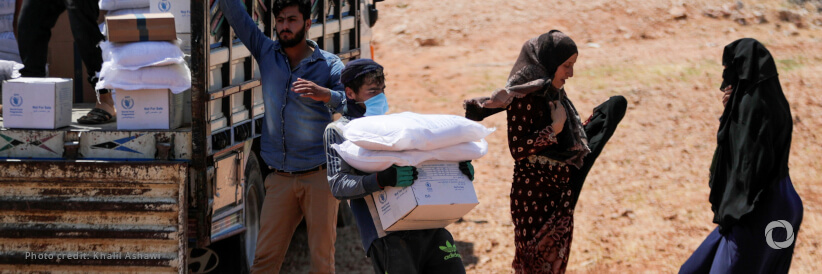As hostilities continue in parts of Syria following the collapse of the government, Doctors Without Borders/Medecins Sans Frontieres (MSF) is providing critical assistance to tens of thousands of newly displaced people, said the international medical humanitarian organization.
According to local authorities, more than 80,000 people have been displaced from northern Aleppo to the areas of Tabqa, Raqqa, and Hassakeh in northeast Syria, a region already facing significant humanitarian challenges.
“The situation faced by people who have been displaced is overwhelming,” said Allen Murphy, MSF head of programs in northeast Syria. “People urgently need access to essential services, including health care, clean water, and shelter, as the temperature is dropping considerably. In the current situation, there is also a risk of additional waves of displacement.”
In Tabqa, the stadium and schools are used for receiving and sheltering displaced people, but the facilities are not designed to house people. The situation in these locations is dire. Temperatures drop below freezing while people lack blankets or adequate warmth. Latrines, potable water, and food are all insufficient, as authorities have not had sufficient time or resources to prepare adequately. Existing medical services in some areas receiving displaced people have quickly become overwhelmed by the influx of people.
Displaced people in Syria continue to face challenges
“For now we don’t have any plan,” said one displaced woman from Afrin, a town northwest of Aleppo. “This was the second time we were displaced. There were airstrikes and gunshots, so we left the area. We hope one day we will go back to our village. Now the situation has changed everything.”
MSF has received reports of displaced people facing multiple violations during their journey from Tal Rifaat [Shahba] in northern Aleppo to northeast Syria.
“Shahba looked like a nightmare; we didn’t know what was going on,” said one man who was displaced. “On the journey, we faced too many armed people. They threatened us. ‘We will follow you,’ they said. They said bad words to us. In the middle of the journey, after midnight, there was a convoy of 400 cars or more. People with torches wearing military uniforms stopped us. People were shouted at to give their phones; they were wearing military uniforms, but we don’t know who they were.”
How MSF is responding to needs in northeast Syria
MSF teams have distributed more than 10,000 bottles of water, 200 large tents, infant formula packs, diapers, blankets, and mattresses to those in immediate need in Tabqa. These essential supplies are vital to ensure the health, comfort, and dignity of those who have been forced to flee their homes. In addition to providing these items, the organization have also carried out activities to improve access to clean water, including water trucking to collective centers, providing emergency shelters, and running mobile clinics to provide urgently needed health care.
“We are committed to continuing to respond to the new occurring needs of the people,” says Martine Flokstra, MSF operations manager for Syria. “However, the sheer scale of the needs is outpacing the available capacity and resources of responders. Vulnerable people—many of whom have endured displacement multiple times—require an urgent and dramatic scale-up in humanitarian assistance to support them.”
The security situation MSF teams are seeing on the ground in northeast Syria is characterized by ongoing localized violence and active hostilities with potential threats from neighboring countries which present an immediate risk to the safety of civilians.
“Challenges for people are not reversed overnight,” added Flokstra, “and the context is one of ongoing instability and displacement, so even if many people are currently choosing to return to Syria, it is still critical that this be a voluntary choice.”
MSF calls for the protection of civilians and for all warring parties to take all necessary measures to avoid further suffering and displacement of Syrians. Additionally, MSF calls for safe access of humanitarian organizations to affected populations to allow the effective provision of lifesaving services.

